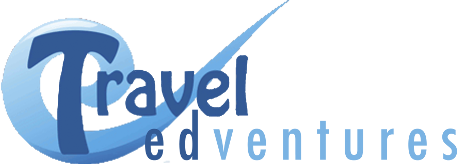What Makes an Application Sing? How YOU Can Help your Agency
Subscribe to Our Blog

Amongst the uncertainties of the COVID era, one thing’s for sure: it’s an exciting time to be working in education. There are more learning and mobility opportunities for educators and learners than ever before. The pause of 2020 has caused a broadening of budgets by European leaders eager to support their educational institutions. The Erasmus+ funding has almost doubled for the period 2021-2017 and Brexit has ushered in Britain’s very own Turing Scheme with an initial budget of £100 million. This also means a surge in educational centres seeking to explore this treasure trove of possibilities. With competition at its peak, creating a strong application is now an even greater challenge.
Many institutions seek the invaluable guidance of independent organisations for the application process but certain methods by coordinators can make the difference from the very beginning. Here is a list of useful tips for making your application a sure winner.
Create a Clear Path
A good application needs a clear direction in order to convince its audience. National agencies are inundated with thousands of funding hopefuls therefore a comprehensive and well-defined proposal is key. The activities envisioned for the programme in question must be in line both with the initial objectives and the eventual impact in order to give the Erasmus+ or Turing application the right flow throughout. Whether its entrepreneurship or technology or practical hands-on skills, whatever the theme of the programme, it needs to correlate with every aspect of the Erasmus+ or Turing application. This level of clarity can only be achieved when the applicant is able to map out the Vision, Mission and Values of the project. Getting to the heart of this three-stage challenge involves addressing some crucial questions such as:
- What is the overall development plan of the school and where does the project fit in?
- What set of results is the project aiming towards and who benefits?
- What is the philosophy of the school and how will the project help realise it?
Discussion groups within the application team and meetings with the management team of an applicant school will help towards verbalising these wider, long-term ambitions.
Define Who is Who
Try to have separate responsibilities assigned for different members of the project that can then be outlined in the Erasmus+ or Turing application. Whether you are concentrating on students in work experience or teachers delivering training, make sure that your application is clearly delegating the separate roles of the team and showcasing the expertise and skills they possess. This will also help to ensure a greater variety of deliverables for assessment and thus create a more robust project. Organising the team of collaborators must also take into account their relative experience or at least their potential to develop. Define the strengths and areas of improvement of each member in order to identify the ideal project structure that you wish to create. It is not a case of finding ‘the best’ individuals but selecting a group that is willing to learn and adhere to the project objectives.
Pieces of a Puzzle
Each element of your Erasmus+ or Turing application carries equal importance therefore should be tackled with the same level of focus and dedication. An important rule is to give structure to the written sections with a clear beginning, middle and ending. For example, when referring to the objectives, it is best to open the section by presenting the overall goals, then giving examples of more detailed targets and then finishing off with an explanation of how your school or participant can improve. Similarly, when referring to the impact of the project, it is important to communicate a variety of outcomes in order to demonstrate the wide-reaching footprint that can be achieved. A good tactic would be to separate the section into different types of results that cover different themes, whether it be environmental or technological or social, according to your project focus.
Be Relevant
National agencies have their own ambitions too which means that successful applications are often those that respond to the official targets set for the country’s educational advancement. Presenting a novel idea that taps into national objectives is all too often a winning step forward. When putting together an Erasmus+ application, it is best to consult available literature and National Agency guidelines on the year’s priorities for VET accreditation. Concerning Turing, the British scheme has kicked off with four main objectives, including social mobility and global outlooks. Consult official experts in order to get the most out of your application.
All in The Details
A great application is one that is precise and accurate enough to create a detailed picture of how the project shall be. Avoid generalities regarding the project aims by providing an almost bullet-point list of specific goals; for example, if the overall aim is enhanced cultural heritage, what aspects are you aiming to tackle – are you focusing on the education side, better preservation or the international promotion of local heritage? For activities, try to provide a day-to-day schedule or monthly outline of the tasks in order to show that you have carefully thought about how the funding will be applied. Ensure that you include targeted writing that captures the essence of the objectives, activities and impact.
Carve Out a Niche
Ultimately, Erasmus+ or Turing applications that stand apart are those that bring a new angle to the multi-dimensional world of education. At the heart of your planning should be an idea that you feel will create opportunities that were previously unattainable and new experiences otherwise unexplored. Try to pin-point the signature features of the project that can deliver a new skills set and a broader mindset for the participants. Focus on the difference that your project can make, to your organisation, to your community, to your students or to your peers. Uncovering and highlighting that particular niche is sure to make your application all the more compelling.
Of course, organisations such as TravelEdventures are at hand to assist in the quality of the application but with these simple steps, you can at least get your application on to a great start! If you need further assistance with your Erasmus+ or Turing application do not hesitate to contact us.

Comments: